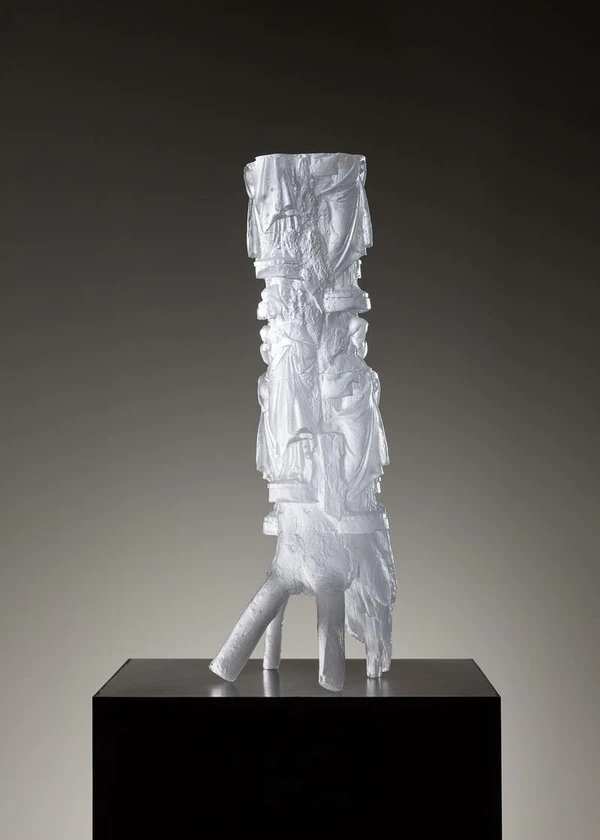Fishermen
Martin Janecký

Project Details:
Exhibition:
September 7 and 8, 2024, from 10 a.m. to 6 p.m. at Savarin Palace
Guided tour:
September 8, 2024 from 5 p.m. in Savarin Palace
The third year of the Prague Art Week festival will host an exhibition called To Be or Not to Be: That Is the Question, where Martin Janecký and Rony Plesl will present their works. World-renowned artists will exhibit their glass sculptures under the patronage of the emerging contemporary art gallery KodlContemporary from 5 to 8 September 2024 in Savarin Palace. Visitors can look forward not only to a unique exhibition, but also to the opportunity to visit the late Baroque palace, which was closed for many years due to extensive reconstruction.
The first joint exhibition of these two world-renowned glass masters is named after one of the most famous and quoted monologues of classical theatre. Just like Shakespeare's magnum opus, the works in the exhibition raise the question of the meaning of human life. They remind us of mortality and balance questions of morality, the power of emotions and the complexity of human (non)being in general.
Hamlet frames the exhibition not only ideologically. Both authors draw their inspiration primarily from history and develop themes of classical art, such as Memento Mori, Vanitas or the motif of a classical bust.
Martin Janecký is known for his mastery of the technique of shaping glass from the inside of a hot bulb (the so-called inside bubble sculpting). Only a few people in the world can do it at the level he does. At the same time, he is the only artist who can create realistic busts using it. They are the focus of his work, and thus of the exhibition itself.
The centerpiece, the Hamlet mask, embodies the Hamlet dilemma of life and death after which the exhibition is named. The half-skull, half-face framed by the paper crown recalls that iconic scene where Hamlet speaks to the skull, demanding an answer to the question "is it more dignified to deny and bear the cruelty of fate and its blows, or to defy the sea of woe and end it forever?"
The now-suppressed topic of death, which has reached almost the level of social taboo, has historically been an important driver of everyday life and morality. A number of classic works of art and literature were devoted to him. It is these that inspire the second of the exhibiting artists, Rony Plesl, who, through this exhibition, confesses his love for classical theater and literature: "I prefer classical literature and classical productions to contemporary theatre. For one thing, I have a relationship with them since childhood, and then the present (in scenography, costumes and literary description) disturbs me. Sometimes the essential can be lost due to its accumulation (…)."
The artist became famous in the world context at the 59th International Biennale of Fine Arts in Venice, Italy, by using the unique Vitrum Vivum technology, which enables the hitherto unfeasible casting of monumental glass sculptures. Plesl also presents this technology at the exhibition. The unique works, in which naturalistic motifs often meet culturally highly cited ones, such as the figures of Jesus Christ, the Virgin Mary or the motif of a skull, are devoted to themes of the transience of human life (in the context of art history, the very popular theme Memento mori - from the Latin "remember death") as well as a person's belief in hope, whether it is related to it through religion or the personal will to live.
The exhibition as part of Prague Art Week will take place under the patronage of KodlContemporary, which aims to make top contemporary Czech art available to the domestic and international public and place it in a global context.





















